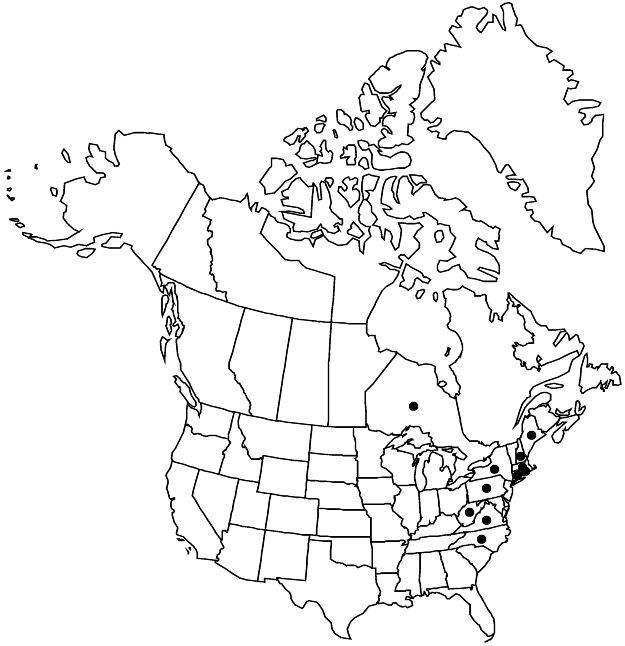Difference between revisions of "Hydrangea paniculata"
Nov. Actorum Acad. Caes. Leop.-Carol. Nat. Cur. 14(suppl.): 691. 1829.
FNA>Volume Importer |
imported>Volume Importer |
||
| (6 intermediate revisions by 2 users not shown) | |||
| Line 28: | Line 28: | ||
|elevation=30–500 m. | |elevation=30–500 m. | ||
|distribution=Ont.;Conn.;Maine;Mass.;N.H.;N.Y.;N.C.;Pa.;R.I.;Va.;W.Va.;e Asia. | |distribution=Ont.;Conn.;Maine;Mass.;N.H.;N.Y.;N.C.;Pa.;R.I.;Va.;W.Va.;e Asia. | ||
| − | |discussion=<p>M. A. Dirr (2004) listed 26 primary cultivars derived from Hydrangea paniculata.</p> | + | |introduced=true |
| + | |discussion=<p>M. A. Dirr (2004) listed 26 primary cultivars derived from <i>Hydrangea paniculata</i>.</p> | ||
|tables= | |tables= | ||
|references= | |references= | ||
| Line 37: | Line 38: | ||
-->{{#Taxon: | -->{{#Taxon: | ||
name=Hydrangea paniculata | name=Hydrangea paniculata | ||
| − | |||
|authority=Siebold | |authority=Siebold | ||
|rank=species | |rank=species | ||
| Line 53: | Line 53: | ||
|publication year=1829 | |publication year=1829 | ||
|special status=Introduced | |special status=Introduced | ||
| − | |source xml=https:// | + | |source xml=https://bitbucket.org/aafc-mbb/fna-data-curation/src/2e0870ddd59836b60bcf96646a41e87ea5a5943a/coarse_grained_fna_xml/V12/V12_160.xml |
|genus=Hydrangea | |genus=Hydrangea | ||
|species=Hydrangea paniculata | |species=Hydrangea paniculata | ||
Latest revision as of 19:13, 5 November 2020
Shrubs or trees, 5–70 dm. Twigs appressed-pubescent, trichomes white. Leaves opposite or 3-whorled; petiole 0.6–2.4 cm, glabrous or sparsely hirsute; blade elliptic to ovate, (5–)6.4–15 × 3–6(–10) cm, unlobed, base rounded to truncate or cuneate, margins serrate to serrulate, apex usually acute, sometimes acuminate, abaxial surface green, sparsely hirsute, often densely hirsute along veins, trichomes at 40× smooth, 0.5–1 mm, adaxial surface green, glabrate or sparsely hirsute, sometimes moderately hirsute along veins. Inflorescences open or compact, 250–1000-flowered, usually conic, sometimes ovoid, 7–25 × 6–11.5 cm; peduncle 2–5.5 cm, sparsely to densely hirsute. Pedicels 1–4 mm, glabrous or sparsely hirsute proximally. Sterile flowers present, white or greenish white, sometimes tinged pink or blue, tube 9–16 mm, lobes 4(–5), elliptic to round, (6–)10–21 × (4–)8–15 mm. Bisexual flowers: hypanthium adnate to ovary to near its middle, 1–1.8 × 1.2–2.2 mm, weakly 7–10-ribbed in fruit, usually glabrous, rarely sparsely hairy; sepals shallowly triangular, 0.3–0.7 × 0.5–1.2 mm, margins entire, apex acute to acuminate, abaxial surface glabrous; petals tardily deciduous, spreading or reflexed, white or yellowish white, elliptic, ovate, or ovate-lanceolate, 3–4 × 1.2–1.5 mm; filaments 1.8–5 × 0.1–0.3 mm; anthers 0.3–0.6 mm; pistil 2–4-carpellate, ovary 1/2 inferior; styles 2–4, connate to middle or distally, 2–3.5 mm. Capsules oblong-ovoid, 3.5–5 × 2–3 mm. Seeds caudate at both ends, 1.7–3 mm. 2n = 72, 108 (Japan).
Phenology: Flowering Jul–Sep.
Habitat: Disturbed woods, roadsides, wooded swamps.
Elevation: 30–500 m.
Distribution

Introduced; Ont., Conn., Maine, Mass., N.H., N.Y., N.C., Pa., R.I., Va., W.Va., e Asia.
Discussion
M. A. Dirr (2004) listed 26 primary cultivars derived from Hydrangea paniculata.
Selected References
None.